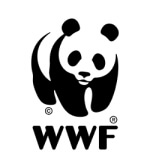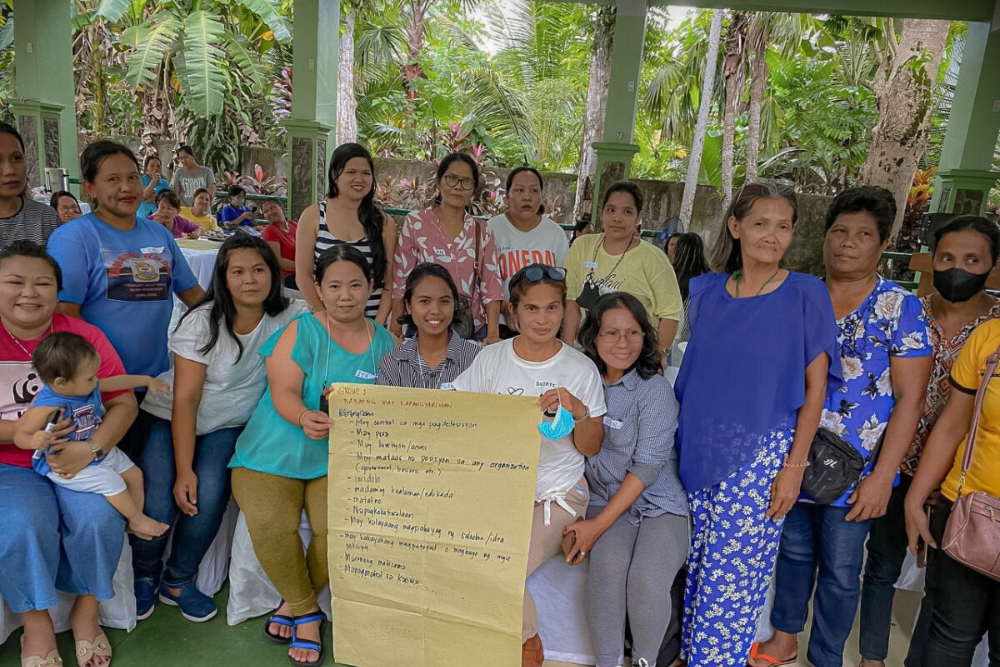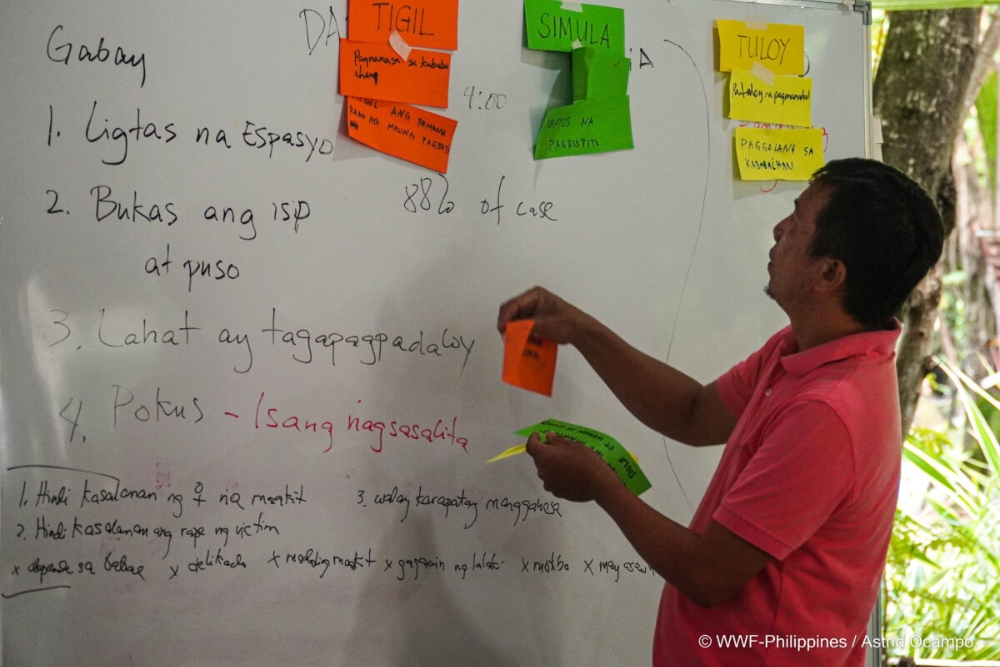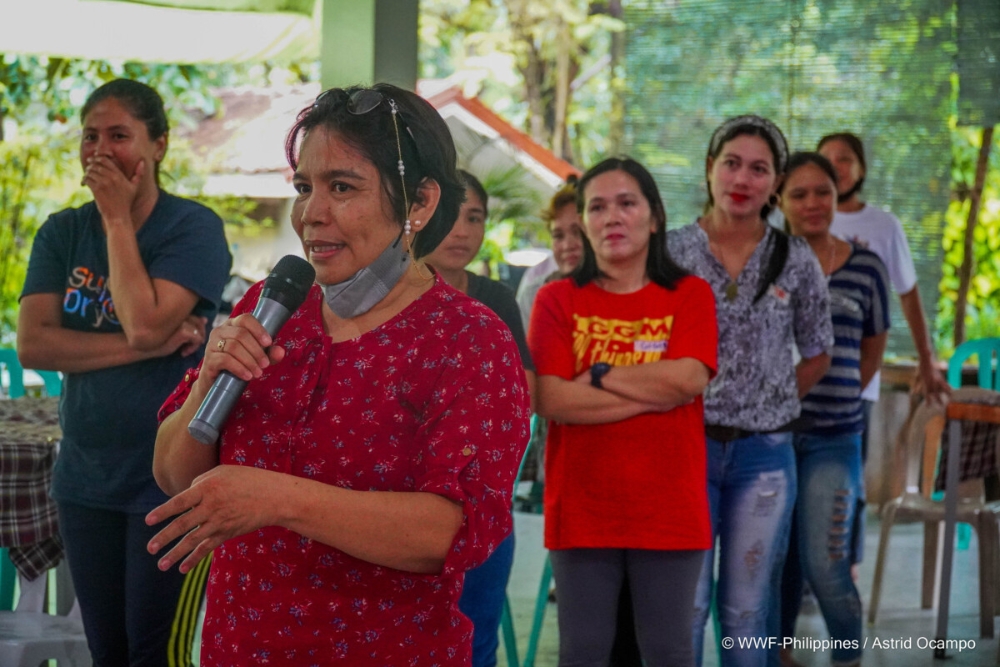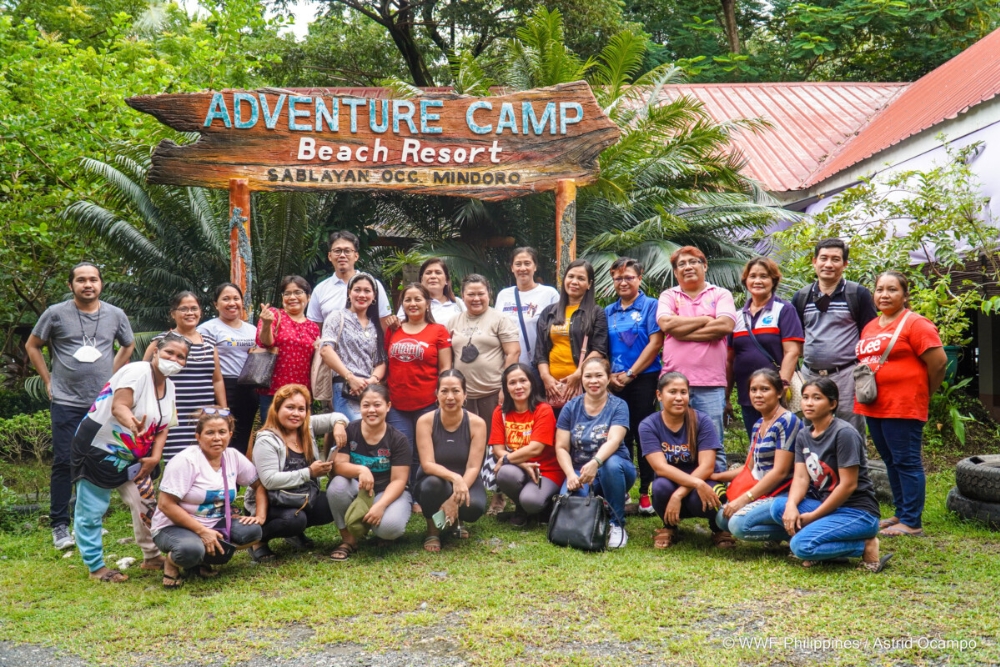Mindoro and the Bicol region – Throughout the month of September through to early October, the World Wide Fund for Nature (WWF) Philippines held a series of gender sensitivity training sessions with partner small-scale fisherfolk in the Lagonoy Gulf and Mindoro Strait.
The training sessions were conducted by the Women and Gender Institute (WAGI) of Miriam College, with both men and women from WWF-Philippines’ partner fishing communities as participants. The sessions were held to improve community awareness over issues of basic human rights, the role and contribution of both men and women in fisheries, gender-based violence and sexual orientation.
WWF-Philippines, together with WAGI, also sought to promote the protection and empowerment of women through the sessions.
Data from the Food and Agriculture Organization suggests that one in every two workers employed by the fishery sector across the Indo-Pacific is a woman. While the harvest of fish remains male-dominated, post-harvest work is largely conducted by women.
Despite almost equal degrees of employment in the sector, the work of women in fisheries remains undervalued and unrecognized.
“This workshop helped build my understanding of my own rights as a woman… I hope us women will have the same opportunities as men in helping our communities, and that we get to experience doing something big and important for our society,” shared Maria Dolly Alfonso, a member of the Tuna Fishers Association of Sta. Cruz, Occidental Mindoro.
WWF-Philippines’ Sustainable Tuna Partnership 2 (STP 2) program explores ways to uplift the livelihoods of small-scale tuna fisherfolk. Part and parcel to this effort is finding ways to address gender-based issues and to find ways to support women as they contribute to the tuna supply chain.
WWF-Philippines has looked at possible avenues of support for women in fisheries. A study conducted by the STP 2 team earlier this year explored the role played by women in the yellowfin tuna supply chain.
The recent gender sensitivity training workshops are the latest measures taken by the STP 2 team toward improving conditions for women.
“Our journey toward sustainability must be an inclusive one. We wish to unlock the full potential of the women who work our fisheries, and to ensure their continued safety and protection,” said STP 2 Program Manager Joann Binondo.

